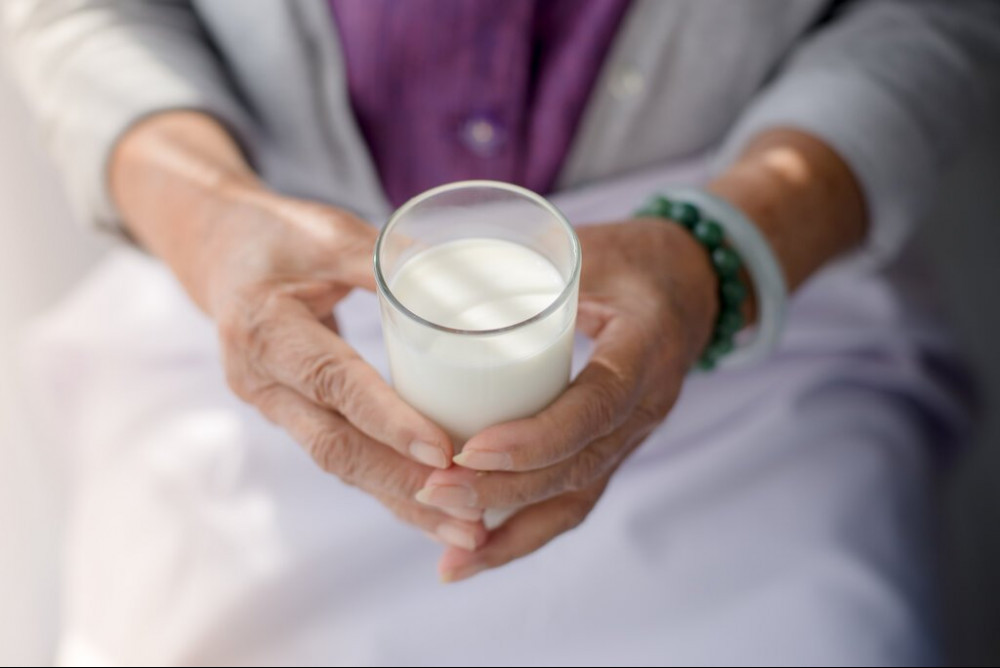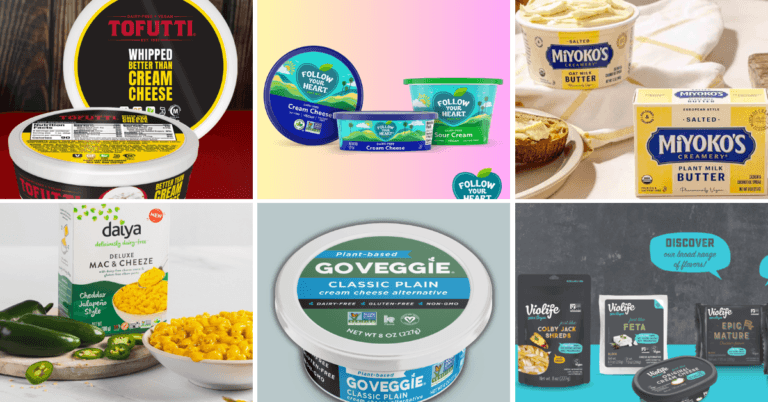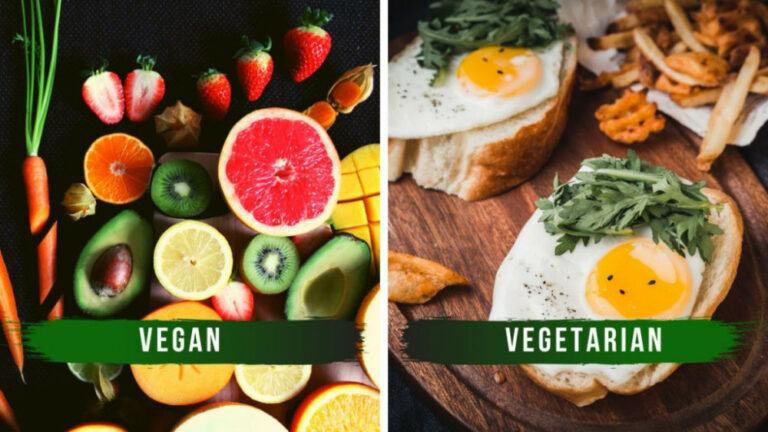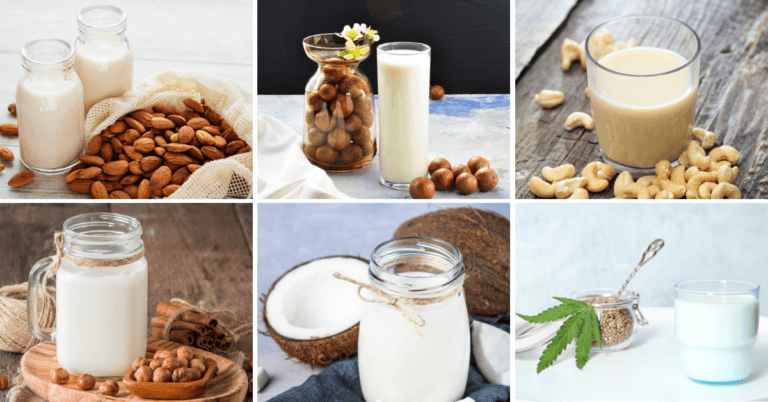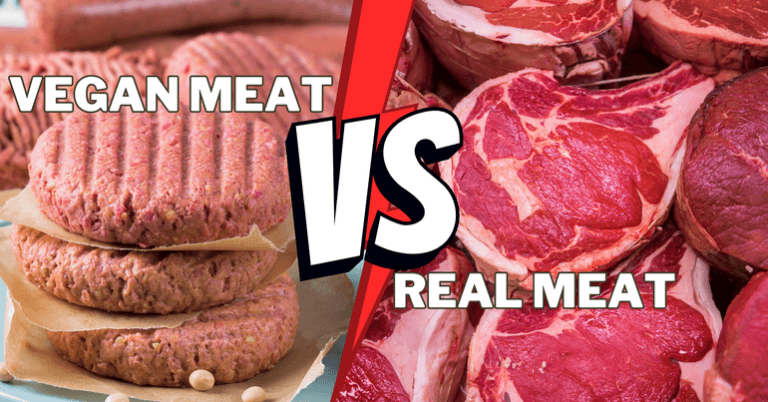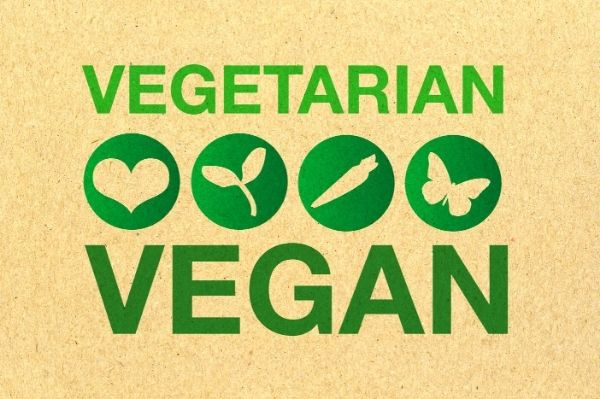Reasons Why Vegans Don’t Drink Milk
Reasons Why Vegans Don't Drink Milk
A vegan diet is one that is entirely plant-based. That means that vegans not only eliminate all meat and fish from their diet, but they eliminate all animal products too (for more information, check out our article: What Vegans Cannot Eat?). Traditional milk products are derived from animals and are classed as dairy (alongside cheese, butter, and yogurt). Milk is commonly produced from cows, but there are many more animals, such as goats, for instance, that also produce milk.
Increasingly, however, more and more plant-based milk products are being produced as vegan substitutes for conventional milk. These plant-based vegan dairy products, such as soy or almond milk, are in no way made from animals and are therefore suitable for a vegan diet.
Can vegans drink milk? The quick answer to that question is no unless it's plant-based milk. Vegans and milk, of the dairy variety, aren't compatible, and there are several reasons why. Each person has their motives for becoming vegan. Generally speaking, vegans are against the cruel treatment of animals that is commonly part of the worldwide food supply chain. Of course, this ensures that vegans (like vegetarians) don't eat meat, because ethically speaking, this becomes wrong.
However, dairy isn't meat, so why don’t vegans drink animal milk? Vegans believe that you should never consume animal products in any of their forms for the same ethical reasons. While no cows are killed to produce cow milk, the modern industrial complex ensures that cows are kept against their will to produce milk.
Cows on dairy farms are pumped full of hormones and made to produce milk on an unnatural scale compared to living in the wild. They live their entire lives confined to their stalls, and their children are taken away for the same lifestyle. Vegans believe that milk production's ethics is one of the fundamental reasons not to eat dairy, but there are other considerations. Dairy farming uses enormous quantities of resources and land, while there are health reasons to become vegan.
Milk is a product of cows or in some cases Goats. No matter how the milk is produced, even if it is organically farmed, it is not a product that a Vegan will consume. There are a few reasons for this. Like a Vegetarian, Vegans express animal rights concerns with all elements of farming. In short, it is not the cow’s choice to provide milk for human consumption, so why should we drink it? Sometimes, within farming, there is poor treatment of animals. Some are fed hormones and are forced to become pregnant.
Although vegan diets have become more prevalent, it still can be challenging to understand all of the rules and limitations. The main thing to remember is that vegans do not partake in any animal products, no matter the form. The first thing that comes to mind that is off-limits may be meat such as beef, pork, and chicken, but this restriction also means that vegans can't drink milk, as milk comes from cows.
The simple way to look at a vegan diet is that vegans strictly stick to foods that are made of fruits, vegetables, nuts, legumes, and grains—so basically a plant-based diet. Therefore, all dairy (foods derived from cow milk), including yogurt, sour cream, and cheese, are not permitted. Because of these strict parameters, there are often many questions regarding veganism, like where they get their protein from, can vegans eat chocolate, and, just as often, why is milk not allowed. But once you have a clear picture of what the vegan diet really is, it is simple to know what vegans can and cannot eat.
Why Do Vegans Not Drink Milk?
A vegan diet is built on a completely plant-based diet. Plant-based foods are not only naturally low in fat and cholesterol but are also thought to have other nutritional benefits such as greater amounts of vitamin D and B vitamins and protein. Since the main dietary source of calcium is from dairy products, vegans are not able to get all of the calcium that their bodies need.
As a result, some people who follow a vegan diet also opt not to drink milk or dairy products at all. Also, some vegans choose to opt-out of consuming dairy products because they do not agree with the way dairy farms treat their animals.
It's very common for people to become vegetarian or vegan due to the diet's health benefits. While it's true that vegan diets are usually higher in fibre, they're also lower in calories. In fact, the average vegan diet typically has about 25% fewer calories than that of a standard healthy diet, which could lead to the problem of weight gain.
It's this that the food industry is trying to capitalize on. There's even the misguided belief that high-calorie dairy alternatives are nutritionally similar to conventional dairy products and may, in some cases, even be nutritionally superior to cow's milk.
There are several reasons why vegans avoid milk, but perhaps the biggest one is the fact that cows must be kept in large enclosed spaces. Cows are meant to have all the space they need to grow to a maximum height of four feet, but some dairy cows are kept in such small pens that they are unable to get the food and water they need to survive.
For example, a dairy cow could potentially go over a hundred days without seeing a pasture to eat grass and drink water. All dairy cows, regardless of size, require milking. Cows use their teeth to puncture the udders of other cows, and as they then need to be milked regularly, these unnatural activities become a major cause of the animals’ pain and distress.
What Are Plant-Based Vegan Substitutes For Conventional Milk?
There are many plant-based vegan dairy alternatives to conventional milk on the market, including:
- Almond milk
- Soy milk
- Soy cheese
- Cashew milk
- Coconut milk
- Almond butter
- Almond milk
One of the most popular plant-based milk alternatives is almond milk. This is made from the seeds of the almond tree and has a similar consistency and taste to dairy milk. It can be purchased in cartons in supermarkets and used in a variety of different recipes. You can also make your own almond milk using almond flour, soya milk, and coconut milk.
Unlike dairy milk, plant-based vegan substitutes for milk can be made from many different ingredients, which means that there are no limits to the types of vegan dairy products that can be made. The following list is a list of some of the most common plant-based vegan substitutes for milk. Soy milk is a milk-like product that is made from soybeans.
The beans are fermented and fermented soybeans produce soybean milk. Soy milk has been a popular alternative for many years, with it regularly featuring on the menus at many restaurants, and it is now often featured in the dairy aisles of grocery stores as a vegan alternative to milk.
Vegan alternatives to milk are increasing in popularity. When it comes to milk alternatives, the options are endless. You can buy soy milk, rice milk, almond milk, rice milk, coconut milk, cashew milk and other vegan alternatives, although some are more widely available than others.
Several companies and companies have produced vegan alternatives to milk that are suitable for a vegan diet. For example, soy milk is one of the most popular plant-based alternatives to conventional milk. Soy is high in protein and is also rich in essential fatty acids (EFA's), which are essential for good health. When compared to conventional milk, soy milk contains approximately 50% less saturated fat than dairy milk. It also contains vitamin D and potassium.
Plant-Based Milk Versus Regular Dairy Cow's Milk
There are many other types of alternative milk as well, such as hemp, oat, rice, coconut, cashew and soy. Most plant-based alternatives have an astonishing amount of nutritional benefits, so it can seem as if the choice is easy. However, the answer is a little more complex than that. Regular milk products, like cow's milk, are not only widely available but also contain a high amount of vitamins and calcium.
Soy milk contains beta-carotene, iron, and vitamin E, but it is also mostly fat-free. Almond milk has an excellent source of vitamins, but it is also mostly fat-free. There are many plant-based milk products that are excellent alternatives to cow's milk. However, not all milk products are created equally.
Dairy cows are reared for dairy production, whereas vegan milk is made from plants, so, technically, they are dairy substitutes. Unless you have it in your diet, it is hard to tell the difference between real dairy and plant-based milk, so it is quite hard to tell if you are consuming real milk or a fake one.
Vegan milk, compared to their non-vegan counterparts, tend to have higher levels of saturated fat, but, compared to dairy products, these plant-based milk tend to have lower levels of saturated fat. In 2017, a report on dairy consumption from the World Health Organisation (WHO) stated that people should avoid consuming too much dairy in their diet. During lactation, dairy products contribute to healthy growth in both human and animal babies.
Vegan Dairy Alternatives
Despite their good name, vegan milk alternatives are often seen as less healthy than the more traditional dairy products. On the whole, cow's milk and almond milk do not contain as much protein, fat, or carbohydrates as the real thing. When it comes to nutritional content, plant-based milk alternatives generally contain more sugar and less protein and fat, but this isn't actually a bad thing.
The majority of dairy alternatives are suitable for vegans as they are available in lower fat and sugar concentrations than conventional milk. This means that, while dairy alternatives don't contain as much fat as dairy alternatives, they contain other good fats which could increase your risk of heart disease.
There are many plant-based vegan dairy products available on the market and a number of them provide the same nutritional benefits as their dairy counterparts. Soy milk is an alternative to cow’s milk and is available as an alternative to cow’s milk in many supermarket brands.
Soy milk is not usually considered to be a vegan product, however, as soy contains soy protein. While it is true that soy contains little to no cholesterol, there are plenty of people that have a low risk of heart disease, therefore, still choosing to drink it. The NHS recommends that adults limit their intake of processed soy foods, such as tofu, to one serving per day.
A Vegan Diet Eliminates All Animal Products
A diet without animal products means that many of the things we eat and drink are vegan-friendly and don't require any protein sources (such as dairy) to create a meal. For example, there are many vegan kinds of milk available that are lactose-free, such as soy, almond, rice or oat milk.
Many of these vegan milk are dairy-free as well so that the process of creating them doesn't require the use of cows or other animals for their production. It is easy to assume that all milk-based drinks would be vegan, but this is not the case. They may still contain animal-based ingredients and also typically contain some proteins such as milk fat and casein.
Although the use of non-dairy milk alternatives has risen rapidly in recent years, one of the main reasons why vegan diets fail is because most people who follow this type of diet are very reliant on milk, yogurt, and cheese. By providing a great source of calcium, milk is a natural source of protein. But dairy products contain too much saturated fat and calcium, so an active vegan needs to supplement with a protein-rich vegan protein source.
The trouble is that many people will not be happy with a plant-based protein source such as tofu or lentils, due to the large amount of vegan protein required to satisfy their needs. The majority of these vegan protein sources have very little nutritional value and don’t replace the calcium content of dairy products.
Why Dairy Is A Problem
Vegans are often faced with a number of misconceptions about milk, which can make it confusing to know whether dairy is something that a vegan should or shouldn't drink. Despite a few vegan milk alternatives being available in stores (like this Nutiva Almond Milk and this Amazofood Cacao Almond Milk), many vegan shoppers are unable to avoid dairy.
For many of us, this is because most commercial brands of milk will have some form of dairy in them. Many companies don't bother checking on their milk products to make sure they are dairy-free, so you can assume that they are not. In addition to this, many companies such as Horlicks will also include lactose in their dairy-free milk.
There are a number of reasons why vegans avoid dairy products, but it boils down to several issues, both in the production of milk and its nutritional content. Animal rights campaigners are aware that dairy is a highly controversial subject because cows are bred specifically to produce milk for humans, not for their own survival.
Whilst animal welfare is at the heart of these objections, the production of milk is harmful to the animal that is typically used for its production. Even the idea that the animal is fed a high protein diet is questionable. Many people are already aware that cows have become large, weight-gaining beasts and that the truth is that their rumen, where they digest food, has become a very large organ.
Separation Of Mother And Calf Soon After Birth
You may have heard that dairy milk contains proteins that dairy cows need to produce milk. The body uses these proteins to produce other essential proteins that are used during normal digestion and immune function. This may have contributed to people becoming vegan for health reasons, and it may also be responsible for people converting to veganism.
However, many vegan milk substitutes are also soy-based and contain no proteins. Several studies have compared the nutritional content of milk alternatives to milk. The studies revealed that vegan milk substitutes contain a significantly higher amount of calcium, vitamin D, protein, Vitamin B12, vitamin A, and vitamin K.
Millions of calves are slaughtered every year for their milk. Although you could argue that this is less damaging than eating meat, this is still a particularly cruel activity. It's common practice in many countries for farmers to leave baby calves alone for days on end in their fields, waiting for them to die of starvation, and this is very distressing to watch, even from afar.
Additionally, vegan milk does not come from cows. They may be living in an unnatural environment and treated much more roughly than factory farm cattle. However, cows are unlikely to be completely vegan, as some dairy is still produced from other species, such as goats or camels. Furthermore, it's important to consider the amount of milk a cow is likely to produce in a lifetime.
The Short, Sad, Confined Lives Of Cows
Animals have existed on Earth for a very long time, and have been around for at least 150,000 years. This means that there has been time for evolution to play a part in their growth and development, which makes them physically and mentally adapted to the environment they live in.
However, many of these animals were only living their lives on land for a very short time. Cattle, for example, have lived on the farm since the Stone Age and were required to reproduce to continue to provide meat for the hunter-gatherer tribes. This meant that cattle needed to be able to conceive quickly after birth, as their sperm and ova had been shipped on long journeys in order to find the women to produce the next generation.
Not only is the life of a dairy cow typically very short – up to about eight years old – but the conditions that she is kept in are incredibly harsh. Cow's milk contains high levels of lactose – a protein that is found in every living thing and is required for normal, healthy functioning of the human digestive system. However, cows are unable to process lactose effectively and quickly.
This is why they are routinely milked, producing lots of milk to quickly remove the lactose. This also means that they are separated from their calves, who are lactose intolerant. As a result, cows produce milk in huge quantities to give their calves the nutrition that they need. Some farmers also give large quantities of milk to their own animals and sell the excess to supermarkets to cover their costs.
The Connection Between Dairy And Veal
Although most vegans won't consume animal products (including dairy), some will still consume dairy products, including milk, cheese, butter, or yogurt. There's a longstanding argument about whether dairy products and veal are linked in any way. Despite decades of research, there isn't a clear answer as to whether or not dairy and veal are linked.
Although it seems reasonable to link the two, many scientists believe that this correlation is a coincidence. Scientists have identified that dairy products are consumed by humans over the age of 2-5 and are a growing market. As there is no evidence to show a link between veal consumption and ill health, it seems logical that any link between dairy and veal consumption is a coincidence.
However, for vegans (or even people who are not vegan), dairy is a controversial topic. The main reason that a vegan diet is often assumed to be healthier than a conventional diet is due to the fact that cows are often raised in small groups on a large scale and their milk is said to be better for humans.
Vegan proponents claim that the higher protein content of dairy has been scientifically proven to be harmful to the human body. This argument is based on the fact that there are significantly more vitamins and nutrients in food from plant sources than in animal products, as well as on the fact that the production of animal milk requires the use of large amounts of water and the use of resources.
Conclusion
It’s fair to say that not all vegans are interested in the taste of animal products. For some, the taste of milk and dairy products isn’t something that they’re willing to give up, but the important thing to remember is that if you don’t care for the taste of dairy products, then you can always replace them with something else. Try experimenting with different types of non-dairy milk such as soy, rice, or oat milk. You can also have your morning latte with plant-based soy or almond milk, or if you prefer a creamier coffee, you can always swap out regular milk for non-dairy creamer.
There are a lot of different choices of a vegan diet that you can choose from, but this is one of the most popular ones. If you have never tried a vegan diet before, it can be difficult to stick to when you’re trying to lose weight. That's why you need to check out the great benefits that veganism can bring to your weight loss journey before you go ahead and change your eating habits.
I trust you enjoyed reading the article about the Reasons Why Vegans Don't Drink Milk. Please stay tuned. There are more blog posts to come very shortly.
JeannetteZ
Want To Learn How To Create Delicious, Cruelty-Free, Healthy AND 100% Vegan Meals? Try These Awesome Vegan Cooking Courses With A Free 7-DAY MEMBERSHIP
Your Opinion Is Important To Me
Ideas? Thoughts? Questions? I would love to hear from you. Would you please leave me your questions, experience, and remarks about this article on the Reasons Why Vegans Don't Drink Milk in the comments section below? You can also reach me by email at Jeannette@LivingTheVeganLifestyle.org.
Here are thee links to some of my favourite articles:
How To Celebrate Your Veganniversary
Best Vegan Foods With Vitamin B12

